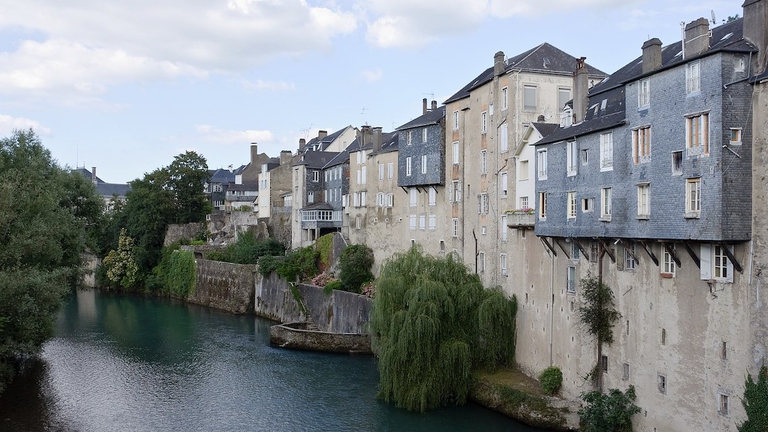
After a landslide led to twelve deaths on the island of Ischia, questions have been raised about the impacts of illegal building, tourism, and climate change.
Not much snow, peaks of 19 degrees Celsius in Norway and even 28 degrees in France: official data confirms the anomalously high temperatures of this past winter.
This has been the warmest European winter ever recorded. The worrying scenario perceived by many Europeans has been confirmed by Copernicus Climate Change Service, the European Union’s Earth Observation Programme, in charge of monitoring climate data from satellites, ships, aircraft and meteorological stations across the world.
This winter saw average temperatures in Europe 3-4 degree Celsius warmer than the average between 1981 and 2010. Compared to the winter of 2015-2016, which set the previous record, the average temperature has increased by 1.4 degrees Celsius.
️ Past winter (12/2019 to 02/2020) was the warmest on record in #Europe, almost 1.4 °C warmer than 2015/2016.
February 2020 was the second hottest on record globally, cooler by only 0.1 °C compared to 2016, as reported by our #ClimateChange Service.
https://t.co/k5dasICVhL pic.twitter.com/PYCsXPzFcU
— Copernicus EU (@CopernicusEU) March 5, 2020
“Europe has been experiencing its mildest winter on record. Whilst this was a truly extreme event in its own right, it’s likely that these sorts of events have been made more extreme by the global warming trend,” according to Carlo Buontempo, Director of the Copernicus Climate Change Service. “Seeing such a warm winter is disconcerting, but doesn’t represent a climate trend as such. Seasonal temperatures, especially outside the tropics vary significantly from year to year. Part of our work is to compare climate data dating back to the pre-industrial era to ascertain long-term climate trends“.
As stated by the The Guardian newspaper, the fact that this was the warmest European winter on record doesn’t come as a surprise to most of the continent’s citizens. In fact, it confirms people’s fears over the past three months. In Norway you could wear a t-shirt outside and enjoy summer-like temperatures of 19 degrees on the 2nd of January. In Helsinki, the capital of Finland, average winter temperatures were 6 degrees warmer than those recorded from 1981 to 2010.
The endangered Saimaa ringed seal gives birth to pups in lairs built into snowdrifts. This January was the warmest in Finnish history yielding very little snow or ice and threatening the next generation of Saimaa ringed seals. https://t.co/qG87r4rrI6
— WWF (@WWF) March 5, 2020
Skiers in Sweden had to resort to indoor slopes due to the higher temperatures, too hot even for artificial snow. This year, Germans were unable to harvest ice wine, a popular dessert wine produced from grapes that usually become frozen whilst still on the vine. The grapes freeze at -7 degrees Celsius, a temperature that none of Germany’s 13 wine-producing regions reached. It was also particularly hot in the Atlantic Pyrenees, in France, with temperatures as high as 28.1 degrees in the shade on the 16th of February. Unfortunately, this wasn’t an isolated anomaly given that temperature of 27.8 degrees were recorded in the area just 15 days earlier.
Siamo anche su WhatsApp. Segui il canale ufficiale LifeGate per restare aggiornata, aggiornato sulle ultime notizie e sulle nostre attività.
![]()
Quest'opera è distribuita con Licenza Creative Commons Attribuzione - Non commerciale - Non opere derivate 4.0 Internazionale.
After a landslide led to twelve deaths on the island of Ischia, questions have been raised about the impacts of illegal building, tourism, and climate change.
Ocean warming has risen to record highs over the last five years: just in 2019 the heat released into the world’s oceans was equivalent to that of 5-6 atomic bombs per second. The culprit, no doubt, is climate change.
What did Greta Thunberg tell participants at the 2020 World Economic Forum in Davos? Once again, the Swedish activist underlined the total lack of concrete solutions to the climate crisis presented by leaders so far.
The list of human and animal victims of the Australia wildfires keeps growing – one species might already have gone extinct – as the smoke even reaches South America.
Kivalina is located on a small island once guarded by sea ice, which is now melting due to global warming. While the sea threatens to wipe the village off the face of the Earth, its inhabitants refuse to give up their lives and traditions.
Thanks to activists, the voice of the world’s peoples resounded through the COP25 like an alarm bell. Governments didn’t reach the results they demanded, but their cries and messages were stronger than ever, reaching even those who weren’t in Madrid.
Climate change poses a risk for millions. However, women are the most vulnerable to its negative consequences: a few simple considerations by the Italian Climate Network help us perceive the global implications of this.
The COP25 ended two days late and with very few steps ahead made. Climate negotiations in 2020 will be an uphill battle as political will clearly seems to be lacking, once again.
What does it mean to live in the “climate moment”? How did we get here? Is it too late to change? Naomi Klein, Alexandria Villaseñor, Joëlle Zask and Bill McKibben discuss these vital questions at the Albertine Festival in New York City.








